5 Critical Differences between landlord insurance and Homeowners Insurance every Property Owner should know about
Renting out property is a significant decision for landlords. It involves managing the risks of damages and liabilities associated with tenant occupancy. A common mistake among landlords is thinking homeowners insurance is enough for a rental property. This mistaken belief can lead to not having enough coverage for tenant-related incidents. This article highlights the differences between rental property insurance and homeowners insurance. It aims to help property owners choose the right coverage for their rental investments.
Understanding the landlord policy vs homeowners policy differences is crucial for financial safety. Landlord insurance and homeowners insurance serve distinct purposes and offer coverage options tailored to properties rented out to tenants or for owner-occupied homes. Meanwhile, homeowners insurance is intended for the owner’s primary residence, covering personal property and loss-of-use, unlike specific content insurance which might offer more extensive personal property coverage, which are typically not included in landlord policies.
The National Association of Insurance Commissioners (NAIC) notes the most common claims under landlord insurance as:
- Property damage claims
- Liability claims
These claims highlight the importance of having the right insurance coverage for landlords. It’s not just about adhering to legal requirements; it’s also about securing your financial investment property and safeguarding against potential financial losses resulting from tenant damages or litigation.
As you decide on insurance for your rental property, keep these distinctions in mind. Whether it’s a long-term rental dwelling policy vs homeowners, a vacation home, or a unit within your primary residence, understanding these differences ensures you are adequately protected. Choosing the right insurance is pivotal for safeguarding your property, tenants, and yourself against unforeseen costs and legal complications.
Understanding Homeowners Insurance
Homeowners insurance protects personal residences from a variety of perils, such as disasters including earthquake damage and accidental damage, theft, and accidents. In the United States, around 88% of homeowners have this type of insurance, highlighting its significance in protecting property and personal belongings.
Homeowners insurance usually includes coverage for living expenses. If your home needs major renovations, the insurance will cover your temporary living expenses and meals. This feature ensures that your living standards are maintained even when your house is temporarily uninhabitable.
The coverage provided by homeowners insurance is comprehensive. It not only covers structural damage and loss of personal property but also offers liability protection. This can protect you and your family from lawsuits related to accidents on your property.
However, there are exceptions and limitations to homeowners insurance. It generally does not cover natural disasters like floods (flood coverage) and earthquakes (earthquake damage). These events typically require separate policies.
There is a key difference between homeowners insurance and landlord insurance. Homeowners insurance as coverage for private residences where the policyholder lives where Landlord insurance is for a residence that is rented out to a 3rd party. This is crucial for landlords to understand, as renting out your property could void your homeowners insurance if your provider is not notified.
In conclusion, homeowners insurance is vital for those living in their homes. It offers extensive protection for your property, possessions, liability coverage, and against water damage coverage. It’s important to be aware of any exclusions and to ensure your policy matches your living situation. The widespread use of homeowners insurance among American homeowners underscores its importance in protecting homes and financial security.
Understanding Landlord Insurance
Landlord insurance offers critical coverage tailored for property owners who rent out their living spaces. Unlike homeowners insurance, which protects the owner’s primary residence, landlord insurance addresses the distinct needs of rental property owners. It safeguards against tenant-related damages, certain disasters, and liability claims.
This type of insurance provides an extra layer of protection for dealing with the challenges and risks of renting out a property. Whether it’s accidental damages by tenants or legal issues from incidents on the property, landlord insurance is an indispensable asset for landlords.
Landlord insurance differs from homeowners insurance in its coverage scope. It protects the property owner’s income including coverage for loss of rent and the insured property against tenant-related damages including accidental damage and liability claims. This coverage includes not just the physical structure but also financial losses from rental activities.
Key features of landlord insurance are:
- Coverage for the building’s structure (structural coverage) and, in furnished rentals, the landlord’s personal property (personal property coverage) within.
- Loss-of-rent coverage, which compensates for lost rental income during repairs.
- Liability protection against incidents involving tenants or their guests.
Key Differences between Landlord and Homeowners Insurance
Coverage in Different Scenarios
Landlord and homeowners insurance serve different purposes. Homeowners insurance covers the policyholder’s primary residence. This includes the structure, personal property within it, and liability protection. In contrast, landlord insurance is designed for short-term rentals and rental properties. It focuses on the structure and liability coverage related to tenant activities. It often excludes tenants’ personal property unless the rental is furnished.
Cost and Premium Differences
Landlord insurance generally costs about 25% more than homeowners insurance, reflecting in the overall insurance cost. This reflects the increased risks of renting properties, like potential damage from tenants and liability claims. Landlords can reduce these costs by enforcing rules like no-smoking, requiring renters insurance, or bundling policies. Notably, 81% of landlords require renters insurance in their lease agreements. This can protect the landlord’s investment and lower insurance costs.
Liability and Coverage for Damages
Both insurance types offer liability coverage, but they differ in specifics. Homeowners insurance covers injuries or damages on the property, regardless of the occupant. Common causes under homeowners policies include bodily injury, property damage, and damage by pets. Landlord insurance covers incidents involving tenants or their guests. It protects against legal and medical bills from injuries on the rental property. It typically handles liability claims related to bodily injuries, property damage, and tenant’s pets issues. This highlights the need for landlords to have the right liability coverage for renting out their properties.
The Importance of Choosing the Right Insurance
Choosing the right insurance products for a property is crucial for safeguarding an investment and ensuring financial stability. Landlord and homeowners insurance serve different purposes. The choice between them depends on whether the property is a primary residence or a rental.
Protection from financial risks is a key concern for landlords. Rental properties come with unique challenges that homeowners insurance doesn’t cover. Travelers Insurance explains, “Not having the correct coverage might be costly. You could be responsible for related medical bills, legal fees, or property damages.” This highlights the financial risks landlords face without proper insurance.
Key differences between landlord insurance and homeowners insurance necessitate careful consideration for rental properties. Landlord insurance caters to long-term rentals with liability coverage and potentially additional fees for extensive coverage, whereas homeowners insurance is geared towards primary residences and may cover personal belongings.
Legal protection and peace of mind are benefits of choosing the right landlord insurance. Misjudging the coverage can lead to serious legal and financial issues.
Maintaining investment value is crucial. Adequate insurance coverage can help quickly restore a property post-incident. This preserves its value and rental income potential. Without proper insurance, landlords could face financial losses and a decrease in property value over time.
Selecting the right insurance is essential for landlords. It protects their property, finances, and peace of mind. It’s important to understand the differences between landlord and homeowners insurance. This knowledge prepares property owners for the financial and legal aspects of renting out their property.
How Landlords Can Save on Insurance Costs
Landlords aiming to reduce insurance costs without losing essential coverage have several strategies to consider. Choosing the right insurance plan provides peace of mind and can be cost-effective with the appropriate adjustments.
Firstly, bundling insurance policies is an effective method to lower insurance costs. Combining policies like landlord, auto, and others with the same company can unlock discounts. These discounts significantly reduce overall insurance expenses.
Another method is increasing deductibles. A higher deductible usually results in lower premium costs. Landlords should evaluate their ability to cover larger out-of-pocket expenses if a claim occurs. This strategy reduces the insurer’s risk, thereby lowering premiums.
Requiring tenants to carry renter’s insurance is a key strategy. The landlord can shift some insurance costs to the tenant. This shifts some liability and minimizes potential costs for tenant-caused damages or legal liabilities. It also provides protection from the tenant if they damage the property. For instance, if the tenant caused a permitted peril such as water overflowing a tub, the landlord can go after the tenants renters policy vs going after their own landlord policy.
Regular property maintenance is essential. A well-maintained property is less likely to have incidents leading to insurance claims. This ensures a safer environment for tenants and can directly reduce insurance costs.
In summary, landlords can reduce their insurance costs by adopting several strategies. Bundling policies, increasing deductibles, mandating renters insurance, and prioritizing property maintenance are critical for cost management. These ensure adequate protection without overspending.
Obtaining a landlord insurance quote is similar to the process when obtaining a homeowners insurance policy quote. With both quotes, the replacement cost needs to be established along with building construction type, any safety features. For landlord insurance, the rental period (Short term vs long term) along with current rent amount are critical components.
What is an overlooked endorsement on an Landlord Insurance Policy?
Personal injury coverage is often an option that many landlords aren’t insured for. On a landlord insurance policy, Personal Injury typically refers to protection for legal liabilities arising from bodily injury or personal injury claims brought against the landlord by tenants, visitors, or even trespassers who suffer harm on the rental property.
The personal injury endorsement on a landlord insurance policy typically covers a range of liabilities and may include:
- Libel and slander: Protection against claims of defamation, including written (libel) or spoken (slander) statements that harm someone’s reputation.
- False arrest, detention, or imprisonment: Coverage for legal liabilities arising from allegations of wrongful arrest, detention, or imprisonment of a tenant or visitor on the rental property.
- Wrongful eviction: Protection against claims of illegal or improper eviction of a tenant, including situations where proper legal procedures were not followed.
- Invasion of privacy: Coverage for claims related to violations of a person’s right to privacy, such as unauthorized entry into a tenant’s unit or unauthorized disclosure of private information.
- Malicious prosecution: Protection against claims of initiating legal proceedings against a tenant or visitor without proper cause or with malicious intent.
- Discrimination: Coverage for claims alleging discriminatory actions by the landlord, such as refusal to rent based on race, gender, religion, or other protected characteristics.
- Emotional distress: Protection against claims for causing severe emotional distress to a tenant or visitor due to the landlord’s actions or negligence.
- Other personal injury offenses: Depending on the policy, coverage may extend to other personal injury offenses recognized under the law, such as violation of civil rights or infliction of emotional distress.
This coverage helps landlords pay for legal defense costs, settlements, or judgments if they are found legally responsible for causing someone’s injury or harm due to negligence or other covered reasons. It’s essential to carefully review the specific terms, conditions, and limitations of the personal injury endorsement within a landlord insurance policy to understand the extent of coverage provided. Additionally, coverage may vary between insurance providers and policies, so it’s advisable to consult with an insurance agent or broker for detailed information tailored to your specific needs.
Reach out to Gordon Insurance to review your existing policy or talk about a new policy.


